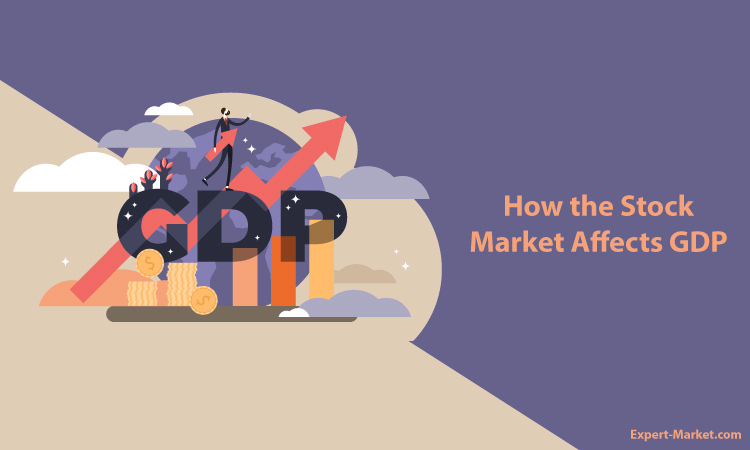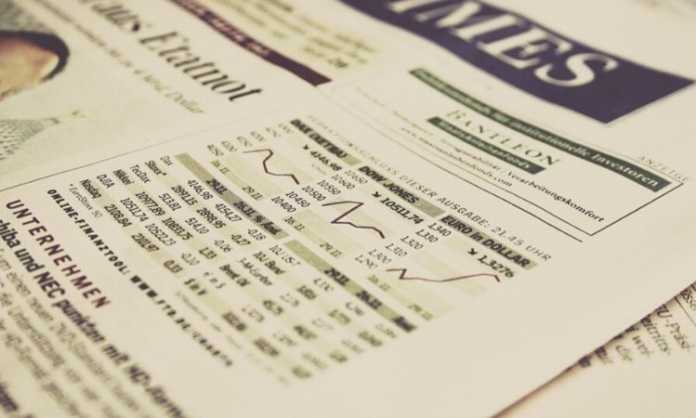Becoming an investor is as simple as ABC.
When you purchase a stock, you are buying into ownership of a company.
This allows you to gain income by receiving dividend payments, as well as enjoy the capital growth of stock prices.
In return, companies use stocks to raise money to finance future projects or pay off debt.
A bull market creates consumer and business confidence. You will have more money to spend on non-essential items like that brand-new car that you’ve been dreaming of. And when stock prices rise, more and more investors will be encouraged to enter the market, creating that upward flow.
However, the opposite happens in a bear market. Confidence falls. Sentiment turns negative. You will stop spending money on non-essential items. And when everyone stops spending, economic growth slows down, leading to a drop in GDP.
Fear and panic encourages you to move your money away from risky assets like stocks. You may favour government bonds, which are considered by some to be a safer option. This creates that downward pressure on stock prices.
Recently, we have seen the stock-market plunge because of the coronavirus pandemic. And we have also seen how the Dow Jones Industrial Average has been used as a measure of how well — or how poorly — the American economy has been doing amidst this crisis.
But how does this work? Surely a single index is not enough to gauge the health of an entire economy? After all, the Dow Jones contains only 30 stocks, doesn’t it?
Some have argued that other indexes — such as S&P 500, which has 505 stocks — provide a better measurement of the American economy. More companies mean a more accurate representation, right?
Well, strictly speaking, that’s not exactly true.
It’s important to remember that the Dow Jones actually punches above its weight.
It represents the most capitalised and influential companies. And for this reason, it will remain one of the strongest indicators of the health of the American economy.
When you look at the charts, you will find that the performance the Dow Jones and the S&P 500 are closely correlated.

Why Does the US Economy Affect Stock Market Around the World?
For years, investors in most countries have looked to the United States for guidance.
The reason for this is simple: the United States is the world’s largest economy. It’s the engine of global trade. And by watching the performance of American stocks, investors might be able to anticipate where their own stocks might end up during times of economic uncertainty.
For example, investors in Australia and New Zealand watched their markets see-saw during the US-China trade war. Even though the tariffs did not directly impact Australia and New Zealand, the ripple effect created similar levels of tension and uncertainty.
Is the Stock Market Heading for Another Crash?
These past few weeks have been turbulent and stressful. Stock markets around the world have seen sharp declines. Amidst all the anxiety, we are all looking for an answer to the big question — have we hit rock-bottom yet?
When we compare the current pandemic with the 2008 Global Financial Crisis, we can see troubling signs. A recession is almost certainly imminent.
As the economy suffers, how much is the average investor willing to lose in order to ease their financial burden?
20%?
35%?
50%?
Right now, the pandemic has yet to reach its peak. Further deterioration could be possible.
Although the Dow Jones has already lost about 10,000 points, it still has a way to go before it reaches the equivalent fall of 2008 in percentage terms — which bottomed out at almost 50%.
Is this what our future looks like? Is this what we’re headed to? If so that’s another 15% loss to go!
Also, looking at historic data, you can see that the global markets are attempting a rally.
This happened during the same occasion during 2008.
During these rallies, it is common to see a different kind of fear arise. FOMO (Fear of Missing Out).
This is where investors turn emotional and come flooding back into the market.
So, if you are thinking of investing during this rally, proceed with caution. Keep your emotions in check. The economic impact of the coronavirus is still yet to be determined.
A Way You Can Sail Through This Economic Crisis
The markets are in trouble, but you still need to know how to generate passive income in an crisis.
There are really is just two ways in which you can successfully achieve this in the stock market.
You can ride the long-term wave…or…you can continue trading.
The thought of doing this might actually turn your stomach and fill you with disbelief. ‘Buying and selling? Really? In a market like this?’
Well, yes, the majority of stocks are going down. But, believe it or not, some stocks have actually seen an increase in value.
That is why investors are going on news sites to receive stock market updates of what they may have missed.
For example, have you thought about investing in gaming companies?
They offer a leisurely escape as most citizens are spending their days in lockdown. These stocks may offer untapped value in the days and weeks ahead.
And what about companies selling luxury vehicles? Maybe not a good choice. These items were generally consumed by the older generation and might not be considered essential during the lockdown.
Yes, there are opportunities out there, as well as risks.
You need to be able to understand the difference.
This is where Wealth Morning comes in. They are a financial news resource that offers a free newsletter on the latest global economic trends.
Are you looking for a bit extra?
Wealth Morning has a premium paid newsletter — Lifetime Wealth Investor — which offers boutique market research and stock recommendations, delivered weekly.
Their exclusive information will help you become a smarter investor.
Now go forth and conquer the stock market!
Try to find that diamond in the rough!




























